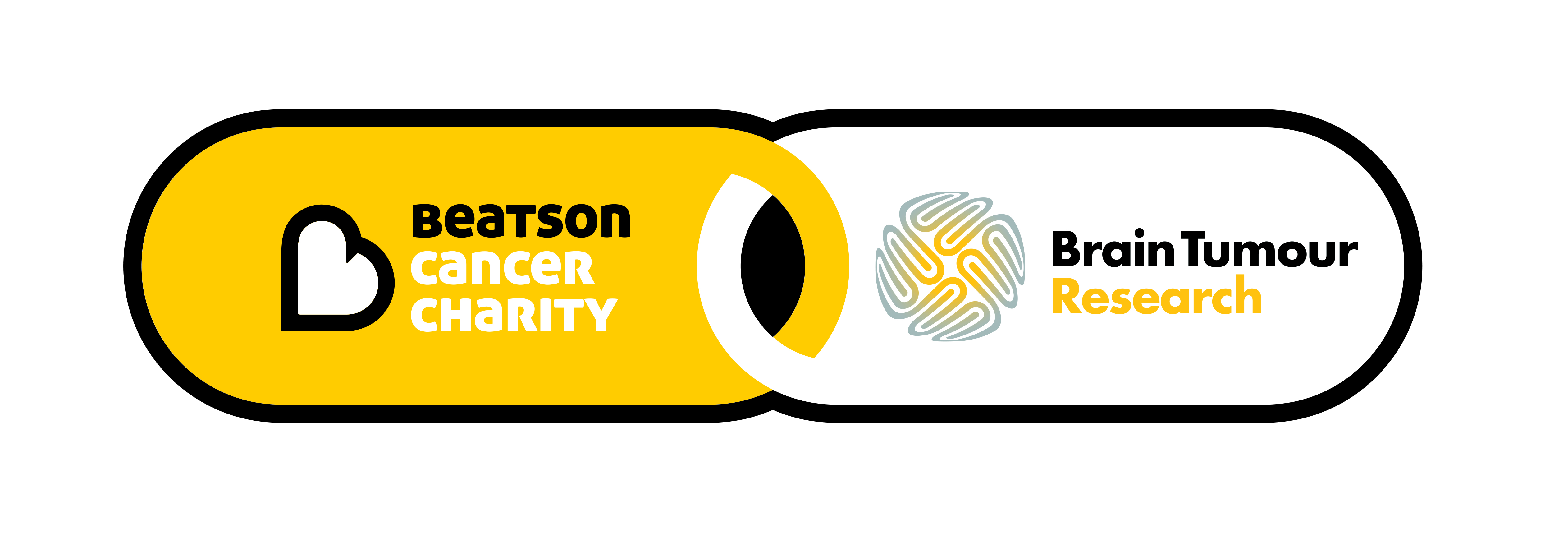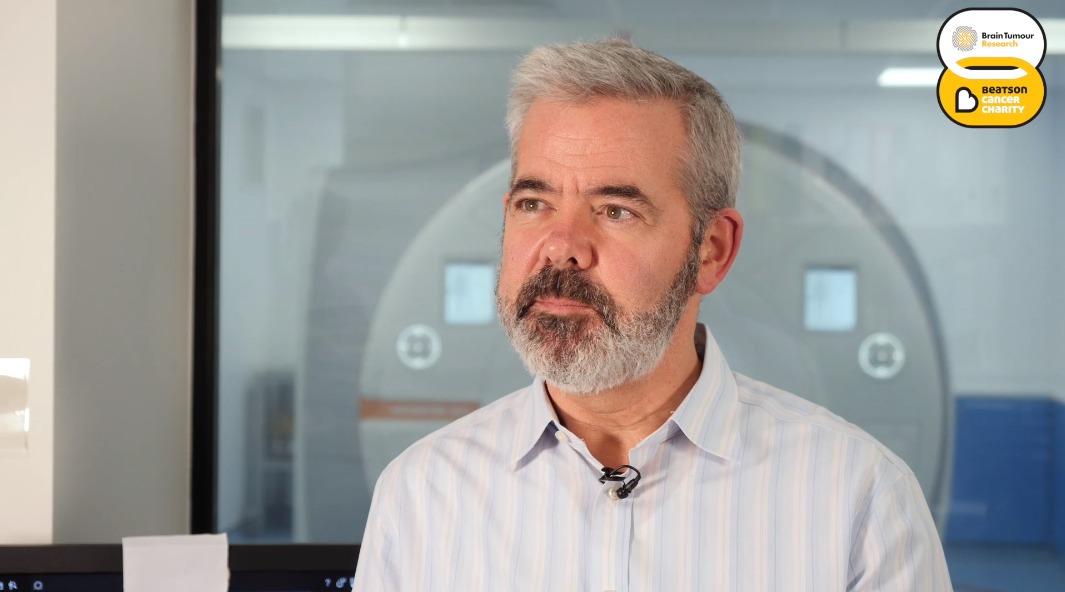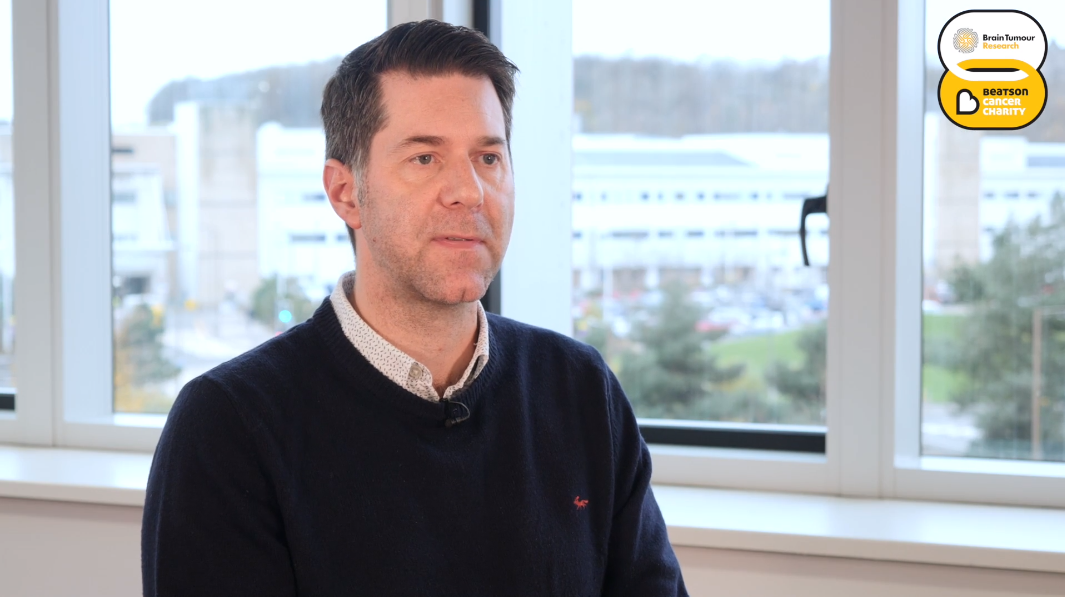
Video
“New, improved treatments for GBM patients are desperately needed. At present, new discoveries and approaches are not progressing quickly enough into clinical testing in patients. The Scottish Brain Tumour Research Centre of Excellence will help bridge this gap leading to pivotal preclinical proof-of-concept data to support clinical trial development for patients. The Centre represents a significant investment in Scotland and would complement our other Centres of Excellence at the University of Plymouth, Imperial College London, Queen Mary University of London, and the Institute of Cancer Research.”
Dan Knowles, Chief Executive of Brain Tumour Research
Beatson Cancer Charity is delighted to be working with Brain Tumour Research in a unique collaboration aimed at changing the story for brain tumour patients in Scotland.
The two leading cancer charities are working to establish the Scottish Brain Tumour Research Centre of Excellence, which will be based in laboratories at the University of Edinburgh and University of Glasgow.
Your support would enable world-leading brain cancer experts to get closer to finding a cure for glioblastoma (GBM), a highly aggressive brain tumour with a devastatingly short average survival time of 12-18 months.
The complexity, diversity and rapid growth of a GBM means it is very difficult for researchers to develop treatments that can be effective for a patient with this diagnosis.
With funding, researchers in Edinburgh and Glasgow would be able to increase the number of clinical trials for GBM patients in Scotland and improve outcomes. Home to the largest group of multidisciplinary GBM researchers in the UK, the Centre will bridge the gap between promising new discoveries and patient benefit, from laboratory to bedside.
How is glioblastoma (GBM) currently treated?
Surgery to remove as much of the tumour as is possible and safe is the first option for the treatment of a GBM. Unfortunately, the diffuse nature of GBM means that some tumour cells will almost always be left behind and continue to grow. For this reason, radiotherapy and chemotherapy are the next stages of treatment. Usually, people are offered the chemotherapy drug temozolomide alongside radiotherapy, and then further doses of temozolomide afterwards. Research into new treatments, such as immunotherapy and targeted therapies, is ongoing, and these treatments may offer hope for improved outcomes in the future. However, at present, there is no known cure forGBM which is why we need your help.

Professor Anthony Chalmers, Professor of Clinical Oncology, University of Glasgow:
“We all want the same thing, which is better treatments for patients with brain tumours, but we’re coming at it from different angles and different areas of expertise. Professor Pollard’s team is doing discovery science, identifying potential new targets and treatments and, in Glasgow, we run clinical trials to test new treatments. What we’ve been missing is the space in the middle where we rigorously test these new therapies. We have made a lot of progress in treating other cancers, but brain tumours come with particular challenges. The most important goal we have for this Centre is to increase the number of treatments that we’re able to offer patients with brain tumours.”

Professor Steve Pollard, Professor of Cancer and Stem Cell Biology, University of Edinburgh:
“One of the reasons we wanted to develop a new Centre was the realisation that by working together we had incredible complementary strengths that could really make a difference. Brain tumours are very challenging to treat, they’re often detected quite late, and they lie deep in the brain so we can’t monitor them.”
Did you know?
More than 3,000 people are diagnosed with a GBM in the UK every year.
More than 1,000 people in Scotland are diagnosed with a brain tumour every year.
More than 400 people in Scotland are diagnosed with a high-grade brain tumour every year.
Around 400 people in Scotland die from high-grade brain tumours every year.
(Source: NHS Scotland and Public Health Scotland)




 Donate
Donate
